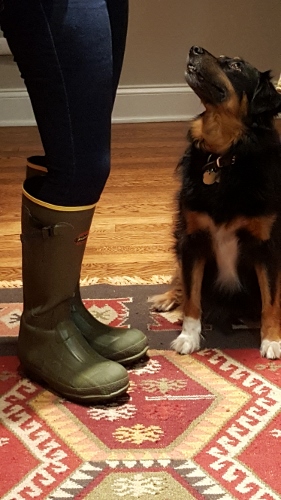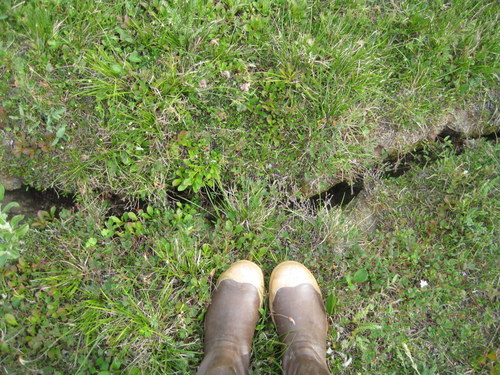Bound for the Last Frontier
 Ranger thinks these boots may be too big for walking…
Ranger thinks these boots may be too big for walking…
I can’t believe it. I am headed back to the Alaskan Arctic this summer. Back in 2013, I was lucky enough to be a part of Amanda Koltz’s “Team Spider,” which sought to understand the complex interactions within a high arctic soil food web, particularly as regulated by a generalist predator like the wolf spider. CAVEAT: It had a lot to do with permafrost and decomposition. Take note of that, as it might come in handy later. But that was 2013…3 years ago, so why am I headed back to Toolik now?
It all started with the simplest of emails “Opportunity for PolarTREC Alumni” – seems innocuous, no? In the past, I have been incredibly fortunate to have had “Opportunity for PolarTREC Alumni” projects before – presenting at the National Science Teacher’s Annual Conference with Bruce Taterka and Alicia Gillean, hosting the ICE-MITT team’s ice cores at our inner city Chicago school, and even creating a Polar Science/Climate Change class at Lindblom Math & Science Academy. Not to disparage any of my previous PolarTREC experiences, but this was something totally different – I have been asked to join the Deep Roots expedition up at Toolik Field Station. I AM GOING BACK.
Stay tuned (and sign up) for future journals about my experiences with the Deep Roots research team. I am so excited to be working with the Deep Roots team to head back to my old stomping ground – permafrost…AND YES, THE PUN WAS INTENDED.
 I can't wait to get these boots back on the tundra!
I can't wait to get these boots back on the tundra!

Comments